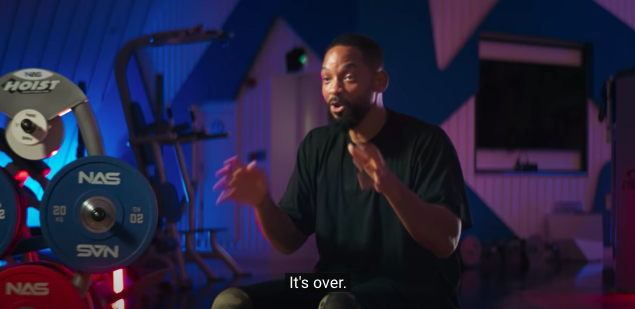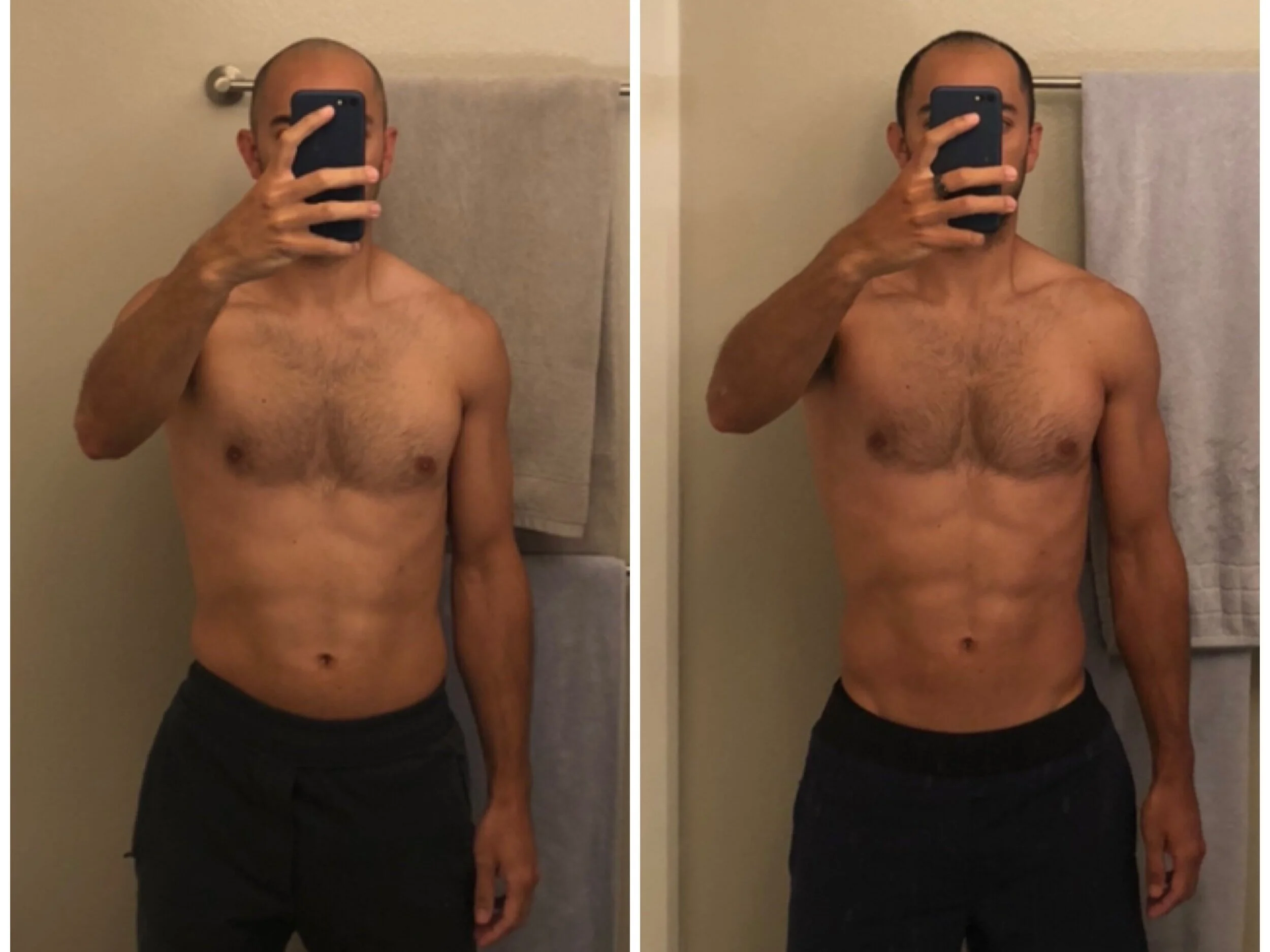The push you need can come from anywhere. It’s easy to get trapped in our own heads. To think of excuses not to do something. To push off making time for the things that you know will make you happy. To fill our days with mindless distractions of busy work. And it’s times like those that the right push can start the ball rolling in the right direction. Mine came from Twitter.
I was tracking Will Smith’s most recent journey from Fresh Prince, to Hollywood mogul, to dude who put on a few too many pandemic pounds, to the guy trying to get in “The Best Shape Of His Life” … to man trying to inspire others with his story via his memoir. This was the guy whose famous drive and work ethic stated that he would rather die on a treadmill than have someone outwork him. And he was out here setting lofty goals … and missing them. A slow(ish) time for a 5k run. Missing his publisher’s deadlines for chapters for his book. Not hitting his weight loss goals. And just generally being burnt out.
And I thought, “Wow”. This is so important. What’s happening in him being vulnerable about his failures, his misses and his straight exhaustion is he’s showing that he’s human. That the Hollywood grind that got him to the top ain’t always pretty. That failure happens. And sometimes when declare a big goal publicly … you fail very publicly.
It reminded me when Kevin Love and DeMar DeRozan kicked off the mental health discussion in the NBA. When they were very open about the struggles that they felt. The anxiety and depression that they were dealing with. Being open about the struggle. About the need to seek help. About how it helps to talk about it. And to think that these conversations will influence a generation of people that look up to these athletes, entertainers and influencer and know that it’s okay to face struggles. (And if you’re looking at the season that DeMar’s having right now, knowing that the struggle makes you stronger).
So here I am. Trying to figure out how to become my own Will Smith. To inspire someone else. By sharing my experiences. I don’t have the perfect answer of how to do it. But I know that I have to start.
I’ve tried to codify some of the with my podcast ”Make The Cut”. But the goal of that is to help the next generation of talent break into pro sports. The focus is on other people, their journeys, their lessons and their advice. I haven’t spent time on a platform to share my personal learnings. They’re always obsucated by generalizing the lesson so as to not embarass myself with a real life example. And maybe to think that it will be more easily applied to others’ lives and contexts if it’s not a specific example about getting chewed out by the President of the Toronto Maple Leafs for unfollowing a bunch of shitty accounts on Twitter.
There’s a tiny voice of mini imposter syndrom trying to tell me that it might be hubris to think that my story and my experiences can help other people. But I know that it’s bullshit. You can learn a beautiful lesson from any person on this planet if you dig deep enough. And I know that the most rewarding times for me at work is to share those experiences (those of you who have worked with me know that through our “Fail Fridays” or “Monday Recommendations”). And see people apply those lessons, get better at work. At life. To level up by their own will and hard work.
So here’s the start. Here’s how I plan* to do it:
1/ BE RUTHLESSLY AMBITIOUS
Ambition can me people feel uncomfortable. Fuck, there’s definitely been times where it made me feel uncomfortable when I witnessed it in other people. But for me that discomfort was really jealousy. Jealousy that someone else was willing to have an audacious goal and the balls to state it publicly.
That somehow their journey to chase down their goal would shine a light of me not doing it for mine. Or that their potential success would detract from my life by comparison. We humans are interesting characters. When we can’t root for each other to be successful … man, it’s toxic. And a decade ago, I was able to examine that in myself and reconsistute how I thought about ambition.
And now it’s about being public about it. This isn’t manifesting some bullshit. This is about being outwardly clear with my goals so that other people can help me with them. I want to be the top dog running a marketing team. Make ambitious work. Grow a brand to global dominance.
2/ OPTIMISM + HARD WORK
People don’t fall into success. It takes hard fucking work. Consistently. But just because the work is hard doesn’t mean that it needs to suck. And that’s where optimism comes in. The belief that it’s going to happen. That those goals are going to be crushed. That the grind and hard work is for something worthwhile.
3/ BE OKAY WITH PUBLIC FAILURE
I worked at a place where nothing was a failure. Nothing. Every single project was a success. Every single thing we did with our fans was the right thing to have done. That was the culture of the company. People were always spining something as a win. And that’s a load of bullshit.
The organization was not magically better than other places. It wasn’t batting a thousand. It was sweeping failure under the rug. Refusing to acknowledge it. Refusing to shine a light on it and let lessons be learned. And that’s destructive. Mistakes would be repeated a couple of years later. It was a joke that every three years there would be a restructure, but it was really just two structures that we would swap between.
So I’m going to be okay with public failure. And I try conduct myself in a manner as if all of the things that I say and I do could eventually be public. There are plenty of moments when I was wrong, but I thought it was the right thing to do at the time. Let’s let others learn from our mistakes. Let’s illuminate the lessons learned from failure, not just celebrate the stories of success.
4/ PUBLISH THE NARRATIVE
Write. Write. Write. Or maybe turn a video camera and make some content. But be conscious of not just living the experiences and holding those lessons tight to my chest for me to know, but to share them. To put them out there as permanent content in the world that someone can find. It might be a couple of days from now, it might be a couple of years from now … but the goal is to positively impact one person’s mind.
And be comfortable with all chapters of the story. From the start. To the struggle. To the success. To the fall from grace. To the grind it out to start again. It’s not about just celebrating experience viewed through rose coloured glasses. It’s about sharing the raw lessons that might be uncomfortable to write about, but will help inspire people.
5/ BE WILLING TO CHANGE MY MIND
The Will Smith of 20 years ago is not the Will Smith of today. Over a decade ago, he was preaching hard work hard work hard work. At the expense of sleep. At the expense of your health. At the expense of everything. But that’s not the Will Smith of today. He’s grown to understand that vulnerability demonstrates more strength than putting up an impenetrable facade.
And they say that a characteristic of intelligence is being willing to change your mind in the face of new information. Whether it be from my own personal experience, from scientific research or from patterns learned from other people’s lives, my goal is to be right. And more often than not, that means admitting to being wrong in the face of new data.
Excited to start this journey. And I appreciate you being here for the first step. I don’t know where it’s going to end up, but I know that it will be forward.
- Christian
*Subject to revision





